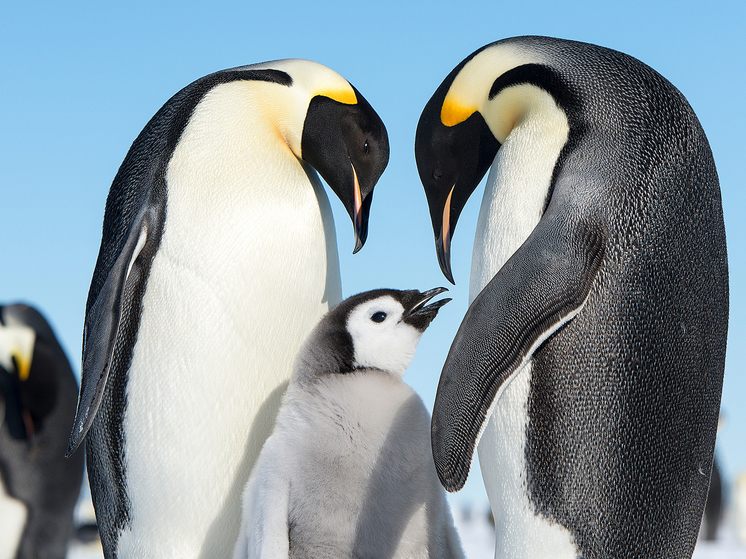Emperor penguin habitats discovered in satellite imagery
Scientists have discovered previously unknown emperor penguin colonies in Antarctica — these locations have been identified using new satellite imagery.

Previously unknown emperor penguin colonies in Antarctica have been discovered by scientists, reports the Associated Press.
Considered “endangered,” emperor penguins are the largest penguins in the world. They raise their chicks on patches of frozen sea ice during the Antarctic winter. But if the ice melts before the chicks fledge, most will die.
At least some emperor penguins are moving their colonies as melting ice from climate change threatens their breeding grounds, according to a study published Wednesday, the Associated Press noted.
One penguin colony near Halley Bay appears to be appears to have moved about 30 kilometers (19 miles) to the east, says Peter Fretwell, a researcher with the British Antarctic Survey. He said unstable conditions that began in 2016 made the old location dangerous.
“Emperor penguins have taken it upon themselves to try to find more stable sea ice,” says researcher.
Fretwell said the four newly discovered colonies had likely existed for years but had not previously been noticed by scientists. These are mostly small colonies, each with fewer than 1000 breeding pairs. There are currently 66 emperor penguin colonies known to scientists.
As Peter Fretwell points out, the newly discovered colonies don't change overall population estimates much—there are currently fewer than 300,000 breeding pairs—but they do help scientists understand where penguins may be moving.
It's unclear whether any of the newly identified colonies could be splinter groups from other larger colonies, said Daniel Zitterbart, a penguin researcher at Woods Hole Oceanographic Institution who was not involved in the study. .
But it is clear that breeding grounds are in constant flux, and a warming world means more “penguins will be on the move,” says scientist.






















































Свежие комментарии